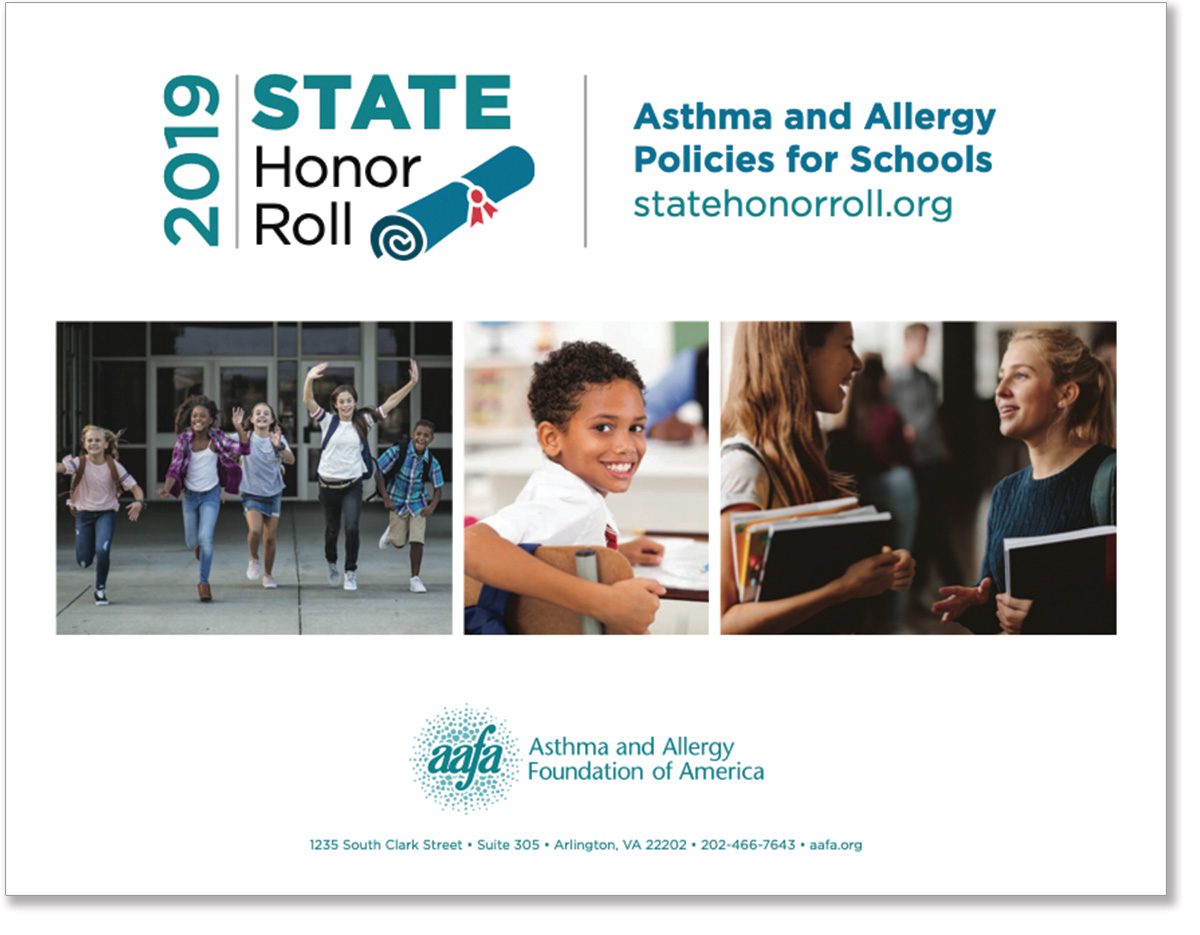Advocacy
Delaware
The 2019 State Honor Roll of Asthma and Allergy Policies for Schools ranks the states with the best public policies for people with asthma, food allergies, anaphylaxis and related allergic diseases in U.S. elementary, middle and high schools.
Closed
Medication and Treatment Policies
Meets 11 of 12 core policy standards in this category:
| 1. State requires physician’s written instructions to be on file to dispense prescription medication to students. |  |
| 2. State policy ensures students’ right to self-carry and self-administer prescribed asthma medication. |                        |
| 3. State policy ensures students’ right to self-carry and self-administer prescribed anaphylaxis medication. |                        |
| 4. State policies or procedures shield school personnel from liability for unintended injuries. |                |
| 5. State requires local school districts to create asthma and anaphylaxis medication policy and provides resources, guidelines and parameters. |                        |
| 6. State policy mandates schools to identify and maintain records for students with chronic conditions including asthma and anaphylaxis. |                        |
| 7. State requires a procedure updating health records periodically. |                        |
| 8. State requires that schools maintain asthma/allergy incident reports for reactions, attacks and medications administered. |                        |
| 9. State requires a student health history form that includes asthma/allergy information to be maintained for each student. |                        |
| 10. State requires schools to have emergency protocols for asthma. |                        |
| 11. State requires schools to have emergency protocols for anaphylaxis. |                        |
| 12. Nurse-to-student ratio is 1:750 or better. |                        |
Meets two of six extra credit indicators in this category:
| A. State requires anaphylaxis medicine – epinephrine – stocking and authority to administer in schools. |                        |
| B. State allows and/or requires asthma quick-relief medicine – albuterol – stocking and authority to administer in schools. |                |
| C. State has or is preparing an explicit asthma program with policies, procedures and resources for schools to manage students with asthma. |                |
| D. State has or is preparing an explicit anaphylaxis program with policies, procedures and resources for schools to manage students with allergies. |                |
| E. State has adopted policy that each school will have one full-time nurse. |                        |
| F. State has adopted policy that school districts provide case management for students with chronic health conditions such as asthma. |                |
Awareness Policies
Meets one of two core policy standards in this category:
| 13. State recognizes problem of asthma in schools and has begun to address it. |                |
| 14. State recognizes problem of allergy in schools and has begun to address it. |                        |
Meets zero of two extra credit indicators in this category:
| G. State sponsors or provides funding for staff training in asthma awareness covering school asthma program/policy and procedures. |                |
| H. State sponsors or provides funding for staff training in food allergies. |                |
School Environment Policies
Meets six of nine core policy standards in this category:
| 15. State has mandated that all schools must have indoor air quality (IAQ) management policies. |                |
| 16. State has adopted a policy requiring that districts and schools conduct periodic inspections of heating, ventilation and air conditioning (HVAC) system & other items important in asthma/allergy management. |                        |
| 17. State has IAQ policies that include specific components important in asthma/allergy management (HVAC, HEPA, carpeting, pesticide use). |                |
| 18. State recommends/requires that districts or schools use Integrated Pest Management (IPM) techniques OR ban use of pesticides inside school. |                        |
| 19. State requires schools to notify parents of upcoming pesticide applications. |                |
| 20. State limits school bus idling time and establishes proximity restrictions. |                        |
| 21. All smoking is prohibited in school buildings and on school grounds. |                        |
| 22. All smoking is prohibited on school buses and at school-related functions. |                        |
| 23. Tobacco-use prevention is required in health education curriculum. |                        |
Meets two of five extra credit indicators in this category:
| I. State makes funding or resources available for technical IAQ assistance to schools. |                        |
| J. State recommends standards and programs to promote environmentally preferable materials for school construction, maintenance and cleaning. |                |
| K. State requires school facility design standards that include low emission construction materials, pollutant source controls, durable and easy to clean surfaces and floors, moisture/mold controls. |                |
| L. State has implemented or actively promotes diesel school bus engine retrofitting program. |                        |
| M. State requires districts or schools to provide tobacco-use-cessation services to students. |                |
Policy Gaps
Noteworthy
Epinephrine Stocking in Schools: Delaware law requires schools to provide emergency medications for allergic reactions and training for school personnel.
School Nurses: Delaware is one of the few states in the nation that addresses the urgent need for school nurses by requiring one full time nurse per school.
Medication Policy: A 2012 law expands the ability of persons to assist in the administration of medications to students by including coaches or persons hired or contracted by schools serving students in kindergarten through grade 12 during approved school activities outside the traditional school day and off-campus activities. S.B. 257
Pesticide Notification: Delaware law does not require schools to notify parents of pesticide applications, but it does require pesticide applicators to be knowledgeable about children’s sensitivity to pesticide applications. Delaware Pesticide Rules and Regulations.
Outdoor Air Quality: New regulations effective in 2012 indicates that school buses should have cleaner air, but does not specifically require diesel retrofitting.












